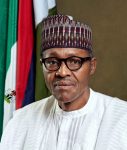Taking NFIU Out Of EFCC A ‘Setback’ – Ribadu
The pioneer chairman of the Economic and Financial Crimes Commission (EFCC), Nuhu Ribadu, has described the proposed movement of the Nigerian Financial Intelligence Unit (NFIU) out of the EFCC, as a setback for the country.
“I feel sad that they want to take the NFIU away from EFCC. This will set us back,” he said.
Speaking on Thursday morning at an Anti-Corruption Situation Room organised by the HEDA Resource Centre in Abuja, Mr. Ribadu recalled how the NFIU was conceived, and nursed by the commission.
He said the NFIU achieved milestones because of the institutional backing and the enforcement effect of the EFCC.
Mr. Ribadu recalled that through the use of the NFIU, the EFCC worked on putting Nigeria back on global financial map.
“What we did with NFIU was to bring Nigeria at par with the rest of the world in terms of financial regulations and tracing suspicious deals,” he said.
He said it was a former official in the Olusegun Obasanjo government, Obiageli Ezekwesili, who first drew attention to Nigeria’s negative rating by the Egmont group and what was needed to address it.
Mr. Ribadu said the EFCC engaged the Financial Action Task Force and made efforts to comply with the requirements, including instituting the NFIU.
Mr. Ribadu also called for openness and accountability in the country’s oil and gas sector.
He lamented that failure to implement far-reaching reforms has left the industry undeveloped and used mainly as a cash cow to enrich a few.
In his presentation, the Executive Secretary of the Nigeria Extractive Transparency Initiative (NEITI), Waziri Adio, described efforts at instilling accountability in the oil and gas industry as a difficult task.
“The area is technical and people who are taking advantage of it don’t want it to change. They want the status quo to remain so that average people don’t understand what’s going on and when you challenge them they say you don’t know anything,” he said.
He said management of resources coming from extractive industry is an issue all citizens should be interested about, adding that “resources themselves are not a curse, it is the way people apply them”.







